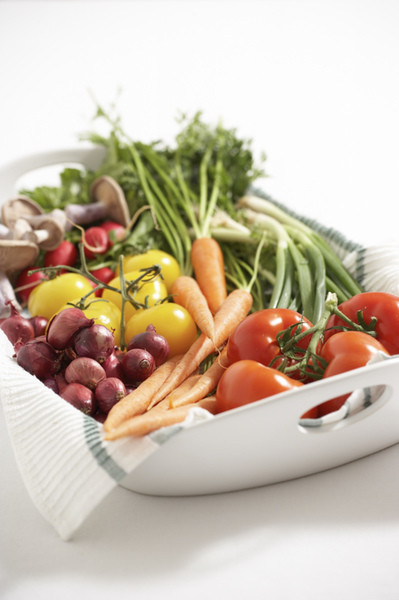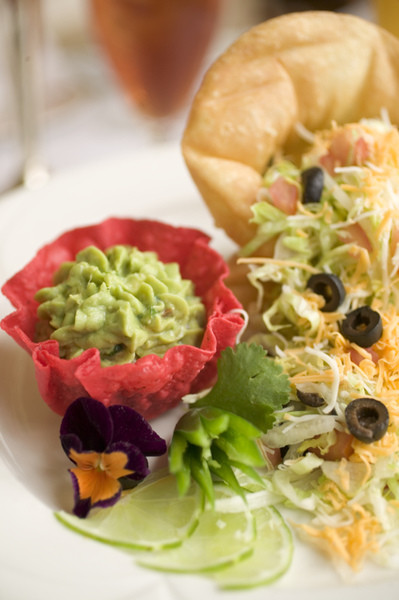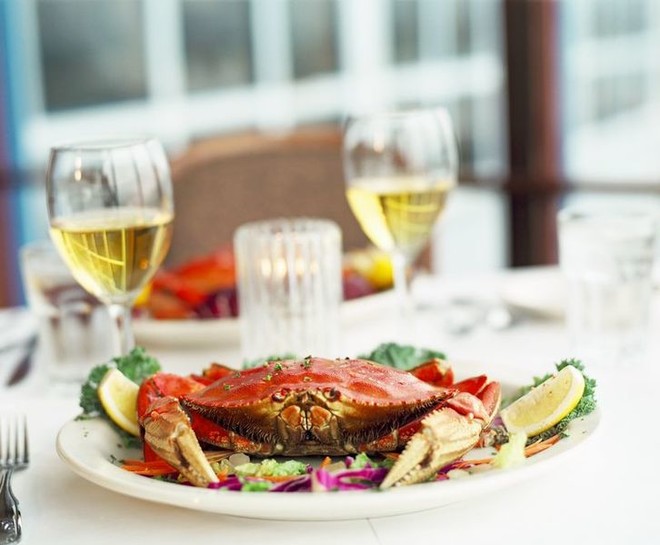 Greek cuisineCulinary traditions of Greek cuisineformed over a fairly long period of time - more than 3,500 thousand years. During this time, it absorbed the traditions of many peoples who came to the Greek lands, some with peace, some with war. But it was also extremely curious and looked in on its neighbors in the Mediterranean, went to the eastern countries, by the will of fate for many years was scattered across the globe, exchanging secrets of culinary craft with other peoples. But absorbing the new, Greek cuisine remained true to itself - the traditions of the cuisine that people created at the dawn of mankind are sacredly preserved to this day. A meal for the Greeks is much more than just a meal. Perhaps, it is at the dinner table that the most active part of the Greeks' lives takes place. Families and friends gather at the table, put all their affairs aside and forget about troubles for a few hours, enjoying communication, rest, and, of course, their favorite dishes. Precisely several hours, because the Greek meal lasts a long time. And it has always been like this - it is enough to recall Homer or Plato, descriptions of lavish feasts, symposia with exquisite dishes and drinks, during which political destinies were decided, world history was made.
Greek cuisineCulinary traditions of Greek cuisineformed over a fairly long period of time - more than 3,500 thousand years. During this time, it absorbed the traditions of many peoples who came to the Greek lands, some with peace, some with war. But it was also extremely curious and looked in on its neighbors in the Mediterranean, went to the eastern countries, by the will of fate for many years was scattered across the globe, exchanging secrets of culinary craft with other peoples. But absorbing the new, Greek cuisine remained true to itself - the traditions of the cuisine that people created at the dawn of mankind are sacredly preserved to this day. A meal for the Greeks is much more than just a meal. Perhaps, it is at the dinner table that the most active part of the Greeks' lives takes place. Families and friends gather at the table, put all their affairs aside and forget about troubles for a few hours, enjoying communication, rest, and, of course, their favorite dishes. Precisely several hours, because the Greek meal lasts a long time. And it has always been like this - it is enough to recall Homer or Plato, descriptions of lavish feasts, symposia with exquisite dishes and drinks, during which political destinies were decided, world history was made. So what is Greek cuisine?First of all, Greek cuisine is simple. The not very generous land taught the Greeks to value every blade of grass, every fruit, even mountain herbs do not go to waste - their delicate taste complements dishes that are already pleasant for the soul and stomach. Everything that can be grown on Greek soil is served fresh, and this is especially true for vegetables. Vegetables occupy a special place in Greek cuisine: they are always present at every meal - in salads, as a side dish and on their own. In Greece, they eat more vegetables than in any other European country. If one of the most important fruit crops in Greek cuisine is olives, then eggplants are perhaps one of the most beloved vegetables. It is part of the famous Greek - moussaka or moussakas, a variety of salads, eggplants are baked, stuffed, stewed. Other popular vegetables among the Greeks include artichokes, tomatoes, beans, carrots, and also stuffed grape leaves. Among the herbs and spices, the Greeks most love onions, garlic, celery, and cinnamon.
So what is Greek cuisine?First of all, Greek cuisine is simple. The not very generous land taught the Greeks to value every blade of grass, every fruit, even mountain herbs do not go to waste - their delicate taste complements dishes that are already pleasant for the soul and stomach. Everything that can be grown on Greek soil is served fresh, and this is especially true for vegetables. Vegetables occupy a special place in Greek cuisine: they are always present at every meal - in salads, as a side dish and on their own. In Greece, they eat more vegetables than in any other European country. If one of the most important fruit crops in Greek cuisine is olives, then eggplants are perhaps one of the most beloved vegetables. It is part of the famous Greek - moussaka or moussakas, a variety of salads, eggplants are baked, stuffed, stewed. Other popular vegetables among the Greeks include artichokes, tomatoes, beans, carrots, and also stuffed grape leaves. Among the herbs and spices, the Greeks most love onions, garlic, celery, and cinnamon. Thanks to the sea (which, by the way, is visible(from almost any corner of any island) Greek cuisine is rich in various seafood: red mullet, eels, swordfish, octopus, squid, shrimp, mussels, cuttlefish, lobsters and many other gifts of the sea. Fish dishes can always be tried in fish taverns (psarotavena), which are usually located on the seashore. Popular types of meat are lamb and pork, but the latter is eaten less often. Perhaps this is due to the fact that during the Turkish rule, pork almost disappeared from the Greek menu. Among poultry, the Greeks prefer chicken. Traditional meat dishes are usually minced or finely chopped meat. This method of preparation is explained quite simply: when there were no refrigerators, this was the fastest way to cook fresh meat. Most Greek dishes are prepared with olive oil and seasoned with freshly squeezed lemon juice.
Thanks to the sea (which, by the way, is visible(from almost any corner of any island) Greek cuisine is rich in various seafood: red mullet, eels, swordfish, octopus, squid, shrimp, mussels, cuttlefish, lobsters and many other gifts of the sea. Fish dishes can always be tried in fish taverns (psarotavena), which are usually located on the seashore. Popular types of meat are lamb and pork, but the latter is eaten less often. Perhaps this is due to the fact that during the Turkish rule, pork almost disappeared from the Greek menu. Among poultry, the Greeks prefer chicken. Traditional meat dishes are usually minced or finely chopped meat. This method of preparation is explained quite simply: when there were no refrigerators, this was the fastest way to cook fresh meat. Most Greek dishes are prepared with olive oil and seasoned with freshly squeezed lemon juice. Greece is especially proud of its cheeses, perhapsThe Greeks have outdone even the French in their love for this product - on average, 23 kg of cheese is consumed per capita per year, which is statistically the highest figure in Europe. There are 20 types of local cheeses in Greece, but the most famous, which can be ordered in almost every restaurant, are feta and kefalotiri. Feta is a white, soft and salty cheese made from sheep's milk, kefalotiri is a semi-hard cheese of white and yellow color. Other more or less famous varieties include graviera, kasseri, kefalograviera, kopanisti, manouri, myzithra, anthotiro, telemes, touloumotiri. The Greeks drink a lot of coffee and practically never drink tea. At least, not the kind the rest of the world is used to. After the tragic year of 1974, when the Turks slaughtered half of the population of the island of Crete, "Greek coffee" appeared, or rather the name of the traditional Turkish coffee changed. It is customary to serve sweets with coffee, of which there is a great variety in Greece, and a glass of water. Incidentally, water and bread are products that are especially respected by the Greeks. They are present at every meal, and the bread is served exclusively fresh and there is a special variety for almost every dish. Water is a symbol of hospitality for the Greeks, it is the first thing that is served to a guest, and in almost all catering establishments water is not sold - it is served free to anyone who wants it.
Greece is especially proud of its cheeses, perhapsThe Greeks have outdone even the French in their love for this product - on average, 23 kg of cheese is consumed per capita per year, which is statistically the highest figure in Europe. There are 20 types of local cheeses in Greece, but the most famous, which can be ordered in almost every restaurant, are feta and kefalotiri. Feta is a white, soft and salty cheese made from sheep's milk, kefalotiri is a semi-hard cheese of white and yellow color. Other more or less famous varieties include graviera, kasseri, kefalograviera, kopanisti, manouri, myzithra, anthotiro, telemes, touloumotiri. The Greeks drink a lot of coffee and practically never drink tea. At least, not the kind the rest of the world is used to. After the tragic year of 1974, when the Turks slaughtered half of the population of the island of Crete, "Greek coffee" appeared, or rather the name of the traditional Turkish coffee changed. It is customary to serve sweets with coffee, of which there is a great variety in Greece, and a glass of water. Incidentally, water and bread are products that are especially respected by the Greeks. They are present at every meal, and the bread is served exclusively fresh and there is a special variety for almost every dish. Water is a symbol of hospitality for the Greeks, it is the first thing that is served to a guest, and in almost all catering establishments water is not sold - it is served free to anyone who wants it.

Making Money with Desserts: Success Stories
Evgeniya Polischuk (Fedutinova) instagram:@evgeniyafedutinovavk.com/janeshomebaking– It all started with baking for family and friends. Gradually, I started posting photos of my baked goods on Instagram – and orders started coming in. I made my first custom-made cake on October 13, 2014, and a little earlier I started making macaroons and cupcakes. You could say that the business “found me”, I am very […]

Soups are cold recipes with photos
Cold cucumber soup with yogurt and lemonsorbet from the chef of the restaurant La Taverna Alexander Zhurkin Photo: Getty Images Ingredients: Plain yoghurt – 125 g Cucumber – 150 g Lemon/lime sorbet – 50 g Cocktail shrimp – 24 g Fresh ginger juice – 1 g Lime juice – 5 g Fresh orange juice – 5 g Parsley – 1 g Pink pepper – 1 g Watercress – […]

barbeque kebab
Pork tenderloin in glaze Photo:Dmitry Bayrak/dbstudioPreparation time: 20 minutes + marinating time.Calories: 454 kcal per serving.For 4 servings: 4 pork tenderloins (approximately 300 g each), 1 onion, 2 cloves of garlic, 1 tsp. lemon zest, 1 tsp. lemon juice, a pinch of ground cumin, coriander and turmeric, 1 tbsp. vegetable […]

Pierre Duacan: dietary recipes: Ducane diet
Beetroot soup Photo:Season’S, Luxury Hotels RepresentationYou will need:· Boiled beetroot – 60 g· Fresh cucumbers – 20 g· Red radish – 20 g· Green onions – 10 g· Egg – 1 pc.· Drinking mineral water – 200 g· Salt – 1 gPreparation:· Boil the egg and beetroot.· Grate the cucumbers, radish and part of the beetroot. Put everything […]





